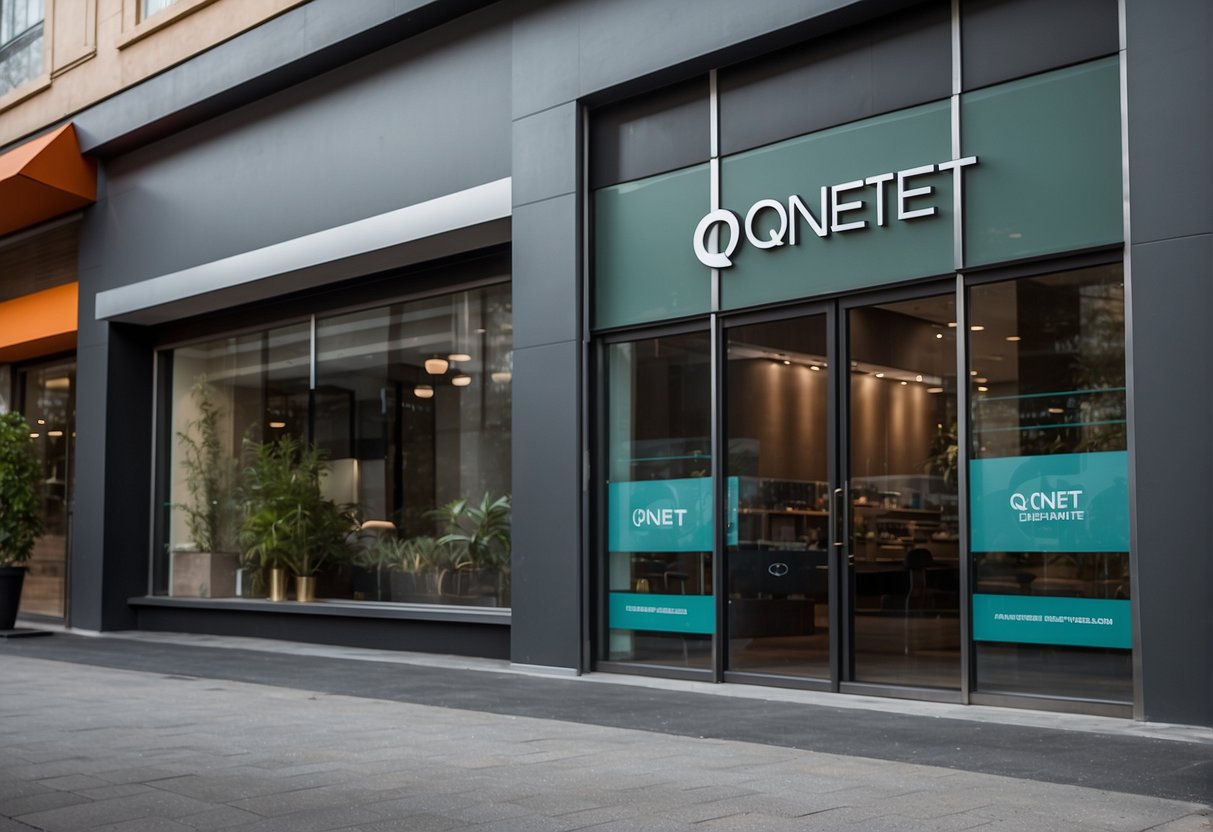Is QNet a Legal or a Scam? Uncovering the Truth about the Controversial MLM Company

QNet, an e-commerce based direct selling company, has been the subject of controversy and allegations of being a pyramid scheme. Despite its explosive growth over the last two decades, QNet continues to battle serious reputation issues and allegations ranging from financial pyramiding to cheating and fraud. The company operates legally in some countries, but has been charged as a Ponzi scheme and multi-level marketing in countries like India.
The direct selling business model is often misunderstood, which contributes to the negative perception of QNet. Direct selling is a legitimate business model that allows individuals to earn money by selling products directly to customers. However, pyramid schemes are illegal and rely on recruiting new members to make money, rather than selling products. QNet has been accused of being a pyramid scheme, but the company has denied these allegations and insists that it operates legally and ethically.
The legal status of QNet varies depending on the country, but the company has faced legal challenges in several countries. Despite these challenges, QNet continues to operate and grow its business. The controversy surrounding QNet raises important questions about the direct selling business model, the role of regulation in protecting consumers, and the impact of these types of businesses on entrepreneurs and society as a whole.
Key Takeaways
- QNet is a direct selling company that has been accused of being a pyramid scheme.
- The legal status of QNet varies depending on the country, but the company has faced legal challenges in several countries.
- The controversy surrounding QNet raises important questions about the direct selling business model, the role of regulation in protecting consumers, and the impact of these types of businesses on entrepreneurs and society as a whole.
Understanding QNet
QNet is a direct selling company that specializes in wellness, education, and e-commerce products and services. Founded in 1998, the company is headquartered in Hong Kong and operates in Asia, Africa, India, the Philippines, and Indonesia. QNet’s business model is based on network marketing, also known as multi-level marketing (MLM), which allows independent representatives (IRs) to earn commissions by selling QNet’s products and recruiting new IRs into the business.
History and Background
QNet was established in 1998 as a subsidiary of the Qi Group, a Hong Kong-based conglomerate that operates in various industries, including e-commerce, telecommunications, and hospitality. The company initially focused on selling watches and jewelry, but later expanded its product line to include wellness, travel, nutrition, personal care, and home care products.
QNet’s Business Model
QNet’s business model is based on network marketing, which allows independent representatives (IRs) to earn commissions by selling QNet’s products and recruiting new IRs into the business. IRs are required to purchase a starter kit, which contains product samples and marketing materials, to begin their business. They can then sell QNet’s products directly to customers and earn commissions on their sales volume. IRs can also earn commissions by recruiting new IRs into the business and building a network of salespeople.
Products and Services
QNet offers a wide range of products and services, including wellness products, education courses, e-commerce platforms, and travel packages. QNet’s wellness products include nutritional supplements, energy products, and personal care items, while its education courses cover topics such as entrepreneurship, leadership, and personal development. QNet’s e-commerce platform, called QNET eStore, offers a variety of products from different categories, including health and wellness, fashion, and home appliances. QNet’s travel packages, offered through its subsidiary QVI Club, provide access to luxury resorts and vacation destinations around the world.
In conclusion, while QNet’s business model is based on network marketing, there is no evidence to suggest that the company is a scam. QNet offers a wide range of legitimate products and services through its e-commerce platform and subsidiary companies, and its independent representatives have the opportunity to earn commissions through sales and recruitment.
Legal Status of QNet

QNet is a global direct selling company that operates in over 100 countries. Like any other direct selling business, QNet is subject to regulations and guidelines set by the respective countries’ governments and direct selling associations.
Global Direct Selling Regulations
Direct selling is a lawful business model that provides a business opportunity to individuals to earn commissions on product sales. Direct selling businesses are regulated by laws and guidelines set by the respective countries’ governments and direct selling associations. QNet operates in compliance with these laws and guidelines and has been recognized as a legitimate direct selling business by various direct selling associations worldwide.
QNet’s Legal Challenges
QNet has faced legal challenges in the past, mainly due to allegations of fraud and running a pyramid scheme. However, most of these allegations have been proven to be false, and QNet has been cleared of any wrongdoing in several court cases.
Supreme Court Rulings and Cases
In 2019, the Supreme Court of India ruled that QNet’s business model is not a pyramid scheme and that commissions on product sales are lawful. The court also stated that QNet’s Indian franchise, Vihaan Direct Selling Pvt Ltd, operates in compliance with the Direct Selling Guidelines set by the Ministry of Consumer Affairs, Food, and Public Distribution.
In Nigeria, QNet has been operating since 2004 and has been recognized as a legitimate direct selling business by the Nigerian Direct Selling Association. QNet operates in compliance with the strict code of conduct set by the association.
QNet has been committed to maintaining the highest ethical standards in its business practices and has taken several measures to ensure the integrity of its business. QNet’s compensation plan is based on commissions earned on product sales, and not on recruitment, which is a characteristic of pyramid schemes.
In conclusion, QNet is a lawful direct selling business that operates in compliance with the laws and guidelines set by the respective countries’ governments and direct selling associations. Despite facing legal challenges in the past, QNet has been cleared of any wrongdoing in several court cases and has been recognized as a legitimate direct selling business by various direct selling associations worldwide.
QNet’s Impact on Entrepreneurs

QNet is a direct-selling company that provides business opportunities to independent representatives (IRs) around the world. The company offers a wide range of products, including health and wellness, luxury goods, and energy products. QNet’s business model is built on the principle of empowering entrepreneurs to build their own businesses and achieve financial independence.
Opportunities for Independent Representatives
QNet provides IRs with the opportunity to start their own businesses with low start-up costs and no inventory requirements. IRs have the freedom to work from home, set their own hours, and build their businesses at their own pace. QNet offers a generous compensation plan that rewards IRs for their hard work and dedication.
Training and Support
QNet provides its IRs with extensive training and support to help them succeed in their businesses. The company offers online training modules, live events, and one-on-one coaching to help IRs develop the skills they need to build successful businesses. QNet also provides IRs with access to a global network of experienced entrepreneurs who can offer guidance and support.
Success Stories and Controversies
QNet has helped thousands of entrepreneurs around the world build successful businesses and achieve financial independence. The company has been recognized by Direct Selling News as one of the top direct-selling companies in the world. QNet has also been involved in controversy, particularly in the Middle East, where it has faced accusations of being a pyramid scheme. However, QNet has consistently maintained that it is a legitimate direct-selling company that operates within the law.
QNet’s “Mama Campaign” has been particularly successful, empowering women entrepreneurs in developing countries to build successful businesses and support their families. The company has also been involved in charitable activities, including supporting disaster relief efforts and providing education and healthcare to underprivileged communities.
Overall, QNet provides entrepreneurs with a legitimate business opportunity and the tools they need to succeed. While the company has faced controversy in the past, it has consistently maintained its commitment to ethical business practices and compliance with local laws and regulations.
QNet and Market Perception
QNet is a direct-selling company that has been the subject of various controversies and allegations of fraudulent business practices. The company has been accused of being a pyramid scheme, a scam, and a fraud by many people. However, QNet has always maintained that it is a legitimate business that operates within the legal framework of the countries it operates in.
Media Coverage and Public Opinion
QNet has received a lot of media coverage, both positive and negative, over the years. While some news outlets have praised the company for its innovative business model and quality products, others have accused it of being a scam company that preys on vulnerable people. The negative coverage has had a significant impact on the public’s perception of the company, with many people viewing it as a fraudulent organization.
Scam Allegations and Defense
QNet has faced numerous scam allegations over the years, with many people accusing the company of running a pyramid scheme. However, QNet has always maintained that it operates within the legal framework of the countries it operates in and that it is not a pyramid scheme. The company has also defended itself against fraud charges, with its representatives arguing that they are independent contractors who are not directly employed by QNet.
Brand and Ambassadorship
QNet has been associated with various high-profile individuals and organizations over the years. For example, the company was the official direct selling partner of Manchester City Football Club, and it has had several brand ambassadors, including Michael Ferreira and Malou Caluza. While these associations have helped to raise the profile of the company, they have also attracted controversy, with many people questioning the integrity of QNet’s brand ambassadors.
In conclusion, QNet has had a mixed reputation in the market, with some people viewing it as a legitimate business and others as a scam company. While the company has defended itself against fraud charges and pyramid scheme allegations, it has also faced significant negative media coverage and public opinion. QNet has a code of ethics and a guaranteed income plan, but it is up to the public to decide whether they trust the company or not.
Economic and Social Implications
QNet’s Role in Developing Economies
QNet is a direct selling company that has been operating in various emerging economies such as Asia, Africa, India, Philippines, Indonesia, Ghana, Rwanda, and Benin. The company’s business model is built on offering a business opportunity to entrepreneurs who can earn a commission by selling QNet’s products. The company’s products range from health supplements to e-commerce goods.
QNet’s role in developing economies has been a subject of debate. On one hand, the company provides a platform for entrepreneurs to start their own businesses and earn an income. This can have a positive impact on the local economy by creating jobs and generating income. On the other hand, some critics argue that direct selling companies like QNet can be a source of exploitation for vulnerable individuals who are promised unrealistic income opportunities.
Community Engagement and CSR
QNet has been involved in various community engagement and corporate social responsibility (CSR) initiatives. For example, the company has partnered with the Health Supplements Industry Association of Singapore to promote responsible marketing and ethical practices in the health supplements industry. QNet has also been involved in various charity initiatives such as supporting underprivileged children and disaster relief efforts.
QNet’s community engagement and CSR initiatives can have a positive impact on the communities where the company operates. However, it is important to note that such initiatives should not be used to justify any unethical business practices. It is also important for QNet to ensure that its business practices align with its CSR initiatives and that it does not engage in any exploitative practices.
In conclusion, QNet’s role in developing economies and its community engagement and CSR initiatives can have both positive and negative implications. It is important for the company to ensure that its business practices align with ethical and responsible standards and that it does not engage in any exploitative practices.
Frequently Asked Questions
What is the legal status of QNET in the United States?
QNET is not registered with the U.S. Securities and Exchange Commission (SEC), and it is not authorized to sell securities in the United States. However, QNET is a legitimate direct selling company that operates in many countries around the world, including the United States.
What are the disadvantages associated with QNET?
Some of the disadvantages associated with QNET include the high cost of joining, the need to recruit new members to earn commissions, and the potential for members to lose money if they are unable to sell products or recruit new members.
In which countries has QNET been banned?
QNET has been banned in some countries, including Iran and Syria, due to concerns about its business practices. However, QNET is a legitimate direct selling company that operates in many countries around the world.
Can individuals genuinely earn through QNET, and how does the compensation work?
Individuals can genuinely earn through QNET by selling products and recruiting new members. The compensation plan is based on a binary system, which means that members earn commissions based on the sales volume of their weaker leg. Members can also earn bonuses based on the sales volume of their stronger leg.
What is the truth behind the negative perceptions of QNET?
There are negative perceptions of QNET due to concerns about its business practices, including allegations of fraud and pyramid schemes. However, QNET is a legitimate direct selling company that operates in many countries around the world.
How does the Supreme Court view QNET’s business practices?
There is no information available about how the Supreme Court views QNET’s business practices. However, QNET is a legitimate direct selling company that operates in many countries around the world.


